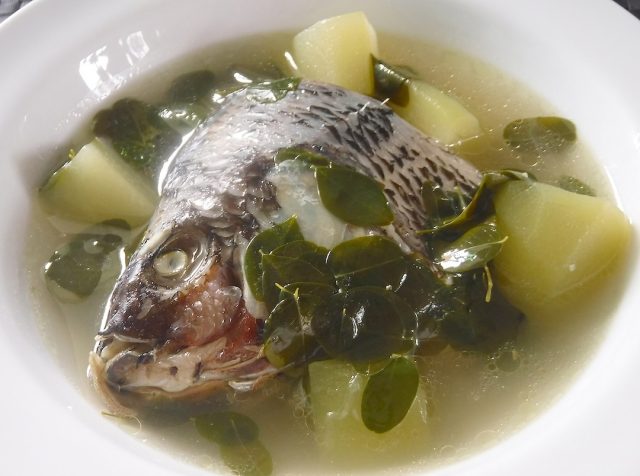
An Internet meme claiming that the popular tilapia fish is a dangerous “mutant” fish has gone viral again prompting the fact-check website Snopes.com to dispute the claims.
The meme claims that eating tilapia was “worse than eating bacon or a hamburger” and that it has been killing families due to the toxic compound dioxin allegedly in the fish.

Since its circulation on social media, several websites have shared similar assertions that tilapia is man-made and that it can supposedly cause cancer and other severe illnesses.
Checking the facts
Tilapia is a commercial term for a variety of “mild flavored’ freshwater species cultivated in many parts of the world.
In the Snopes article, the meme was criticized for the “most obvious flaw” because it showed a fish with skin and bones, thus invalidating its own claim.
It cited another website, Helter Skeletons, which showed the skeleton of tilapia.
While majority of tilapia are harvested from fish farms in the United States and in the Philippines, they have originated from the fresh water of Middle East and Africa.
Based on a study that was cited in the report, tilapia can be found in warm tropical marine environments which include lakes and wetlands.
The health concern of many nutritionists that farm-raised fish such as tilapia are unhealthy compared to those caught in the wild are also untrue.
“Health concerns have been raised about the consumption of farm-raised versus wild-caught fish, mainly due to questionable aquacultural practices that can result in fish diseases, which some producers treat with antibiotics,” the fact-checker David Emery wrote.
While tilapia is a herbivore in the wild, Emery admitted that some farms feed their marine animals with corn and soybean which are safe for human consumption.
The meme’s claim that tilapia is “worse than eating hamburger and bacon” might have come from a popular study by the Wake Forest University School of Medicine in 2008.
The researchers found that tilapia contained less healthy omega-3 fatty acid than other fishes, thus concluding that it has more inflammatory potential than hamburger and bacon.
In an interview, the researcher who directed the study explained that many people took the findings out of context.
“If your doctor or cardiologist is telling you to eat more fish, then you should look for varieties that have higher levels of omega-3 and avoid those with high inflammatory potential,” Dr. Floyd Chilton said.
There was also no specific study proving that tilapia contained amounts of carcinogenic dioxins.
“Exposure to industrial contaminants such as dioxins is likely to vary according to where (i.e., in what countries) the fish are harvested,” he said.
Tilapia, a favorite among Filipinos
In the Philippines, tilapia is the second most cultured freshwater fish next to milkfish (bangus) and is a popular main ingredient in many dishes.
Based on data from 2016, Central Luzon and Calabarzon are the top producers of tilapia with 259,045 metric tons in total production.









